Is human civilisation at an inflection point?

Spectacular technological advancements have been made in the last two decades. Humanity has accelerated its technical prowess by leaps and bounds. The nature of our lives on this planet has been irreversibly altered, for better or worse.
One change stands out with both known and unknown consequences. Social media has profoundly transformed how we carry on with our daily lives, how we present ourselves to communities, and, most importantly, how we see the world and make decisions about it. Our lives and the everyday political decisions that shape them are intricately enmeshed with the virtual geography of Google, Facebook, Instagram, TikTok, X (formerly Twitter), Wikipedia, and other online media.
But think about it for a second. As recently as the 1990s, there was no all-encompassing virtual infrastructure called social media. There were neither smartphones nor internet search engines the way we know them today. There was no Google (which was founded in 1998 but became a part of our everyday life much later), Wikipedia (2001), Facebook (2004), Twitter (2006), Instagram (2010) or TikTok (2016).
We are certainly better connected today with our families, friends and colleagues around the world. The knowledge and information that we seek are simply one click or tap away. The internet empowered humanity to be versatile, informed, and future-ready. Different social media platforms gave grassroots people a voice and a presence, and empowered the powerless, bottom-up. They offered the public opportunities to gather in the virtual space and challenge the political oligarchy wielding unjust power.
Yet, this empowerment came at a potential cost of civilisational mutation. Whether we acknowledge it or not, social media's influence on our lives has become Orwellian. At the heart of the problem is the invisible machination of a mind-manipulating algorithm that convinces us to see the world in certain ways. By mining a user's online behaviour, interests, search patterns, and other digital footprints, this algorithm deploys a complex set of calculations to prioritise the content social media users see in their feeds. It determines what we want to see on the internet, and even what we will be excited about and agree with, reducing the complexities of our minds into a discernible template of yes or no, agree or don't agree.
Slowly but steadily, the user becomes engrossed in, and addicted to, a particular type of narrative about the world and its people, market, politics, etc. In the end, the algorithm controls our thinking in ways advantageous to the people sitting at the apex of the power pyramid, while the masses remain unaware of their slow manipulation and quiet subjugation.
There is a political cost to it. Social media produces a binary view of society, one in which people are either "with us" or "against us." If you are against us, you are forbidden. Two dangerous things are likely to happen at this point. First, people become incurious about others, as the relentless feeds of one type begin to appear as the "whole truth." Second, people begin to weaponise their social-media-fed worldview to dehumanise presumed opponents, including immigrants, political adversaries, and people of other faiths, nationalities and ethnicities.
Think about this: the neo-panoptic algorithm, supported by artificial intelligence or AI, has acquired the power to classify the world into a neat grid of allegiances. The comfort of conformity has the propensity to become addictive, producing a black-and-white world before us. That world rejects nuance, analysis, investigation, and contemplation. Our brains are being reprogrammed to look for the easiest solutions to our most vexing social and political questions. The relentlessness of agreeable content on social media fortifies our ideological beliefs.
The Kafkaesque absurdities in all this are that social media itself is not necessarily biased, but its algorithm creates sharply divided and biased worldviews, with the possibility of profound and structural transformation of the human character. We are confronting a civilisational litmus test.
Researchers have found ample evidence of a causal relationship between social media and political polarisation, hate speech, populism, and declining trust in institutions, despite higher political engagement due to digital media use. The hard reality is that social media is not only mining our personal data, but also steering us towards collective loyalties. People are reluctant to consider the farcicality of what cements the group mindset. Furthermore, paradoxically, being exposed to the viewpoints of political opponents seems to amplify political polarisation. On the other hand, a recent study in Germany found that 50 percent less anti-refugee sentiment on social media would reduce violent incidents by 12.6 percent.
Look at US politics today. People who support Trump simply refuse to understand the dangerous implications of the US Capitol invasion on January 6, 2021. They see no problem in the violent attempt to dismantle the institutions of democracy that define the US. I observed this invasion on that fateful day, quietly standing in front of the US Supreme Court, steps away from the US Capitol. The marauding crowd seemed absolutely convinced in their belief that the 2020 US presidential election was stolen. There was no looking back, no looking right or left. Only forging ahead.
A cursory aerial mapping of the country's social media landscape brings to fore precariously oversimplified stories: AL and anti-AL, pro-1971 and anti-1971, pro-Islam and anti-Islam, pro-faith and pro-secular, pro-Bangla and pro-English, and many such binary models.
The heartbreaking atrocities that are being perpetrated in the Middle East now are in fact a war on a nuanced history of the levant. As people quickly seek shelter in their ideological fortresses, what is being sacrificed is any contemplative thinking on a peaceful coexistence of Palestinians and Israelis. Social media's barrage of news feeds on the ongoing war ensnares people in rigid, inflexible domains of revenge and condemnation. The news feeds rarely allow any dispassionate distance from the source of atrocities. In an increasingly calcifying black-and-white world, there is no desire to see the world from the other side of the divide. So, in the end, what happens is that, at the altar of technology and political theatrics, reflective thinking and reasoning are triumphantly sacrificed.
Consider the recent Argentine election. Javier Milei, Argentina's newly elected, chainsaw-wielding, and "anarcho-capitalist" president, understands the nature of our unnuanced world and social media's benefits to cultivate public support. An Argentine colleague of mine told me that Milei's rise has been a product of popular discontent and a response to the growing distrust in "conventional" politics, allegedly mired in corruption. Populist angst thrives in a culture of herd mentality, one in which people are unlikely to vote based on their individual reasoning.
Let's turn to Bangladesh now. The country's political discourse has long been reduced to simplistic cell blocks of blind allegiances. If university teachers openly flaunt their political affiliations as academic assets, what happens to the quality of the learning environment? What are our students learning? When lawyers—hardened along party lines—engage in physical fights, can we trust our legal system? A cursory aerial mapping of the country's social media landscape brings to fore precariously oversimplified stories: AL and anti-AL, pro-1971 and anti-1971, pro-Islam and anti-Islam, pro-faith and pro-secular, pro-Bangla and pro-English, and many such binary models. The monolithic nature of our narratives has often been reinforced by social media. People fanatically adhere to one singular narrative, both refusing and denying its complex entanglements with other narratives. Like GDP, critical thinking should be an indicator of national well-being. The acknowledgement of complexities and contradictions in our lives is healthy and shows meaningful progress.
We don't quite fully understand how social media—and increasingly, AI—would change the civilisational trajectory. At this point, we can only speculate on whether humanity is at an inflection point. AI is complicating the matter further. The New York Times columnist David Brooks has recently written about the uncharted waters we are in: "A.I.'s history is so exhilarating precisely because nobody can predict what will happen next…The people in A.I. seem to be experiencing radically different brain states all at once. I've found it incredibly hard to write about A.I. because it is literally unknowable whether this technology is leading us to heaven or hell, and so my attitude about it shifts with my mood."
Heaven or hell, we must keep on valuing critical thinking as an antidote to the herd mentality fostered by social media, populism, and the politics of grievance. As an educator, I find our young students the most fertile and promising demographic to foster non-binary thinking. Over the years, in one of my history courses in which I discuss the history of consciousness, I found that students become most animated and curious when I tell them about the possibility of looking at something from many different angles.
Dr Adnan Zillur Morshed is a public thinker and professor at the Catholic University of America in Washington, DC.
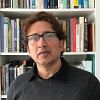
 For all latest news, follow The Daily Star's Google News channel.
For all latest news, follow The Daily Star's Google News channel. 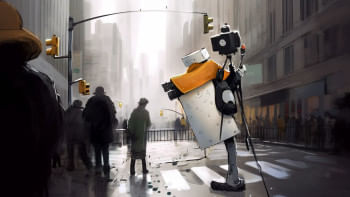
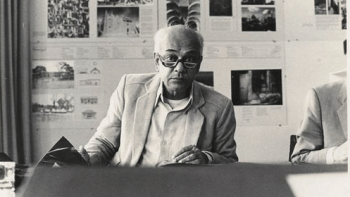
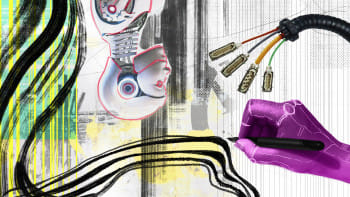
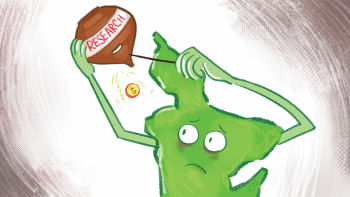
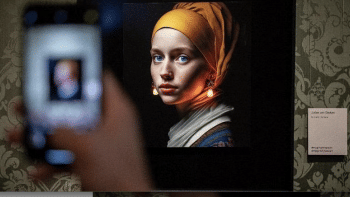
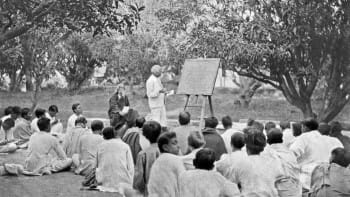






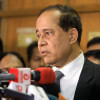


Comments